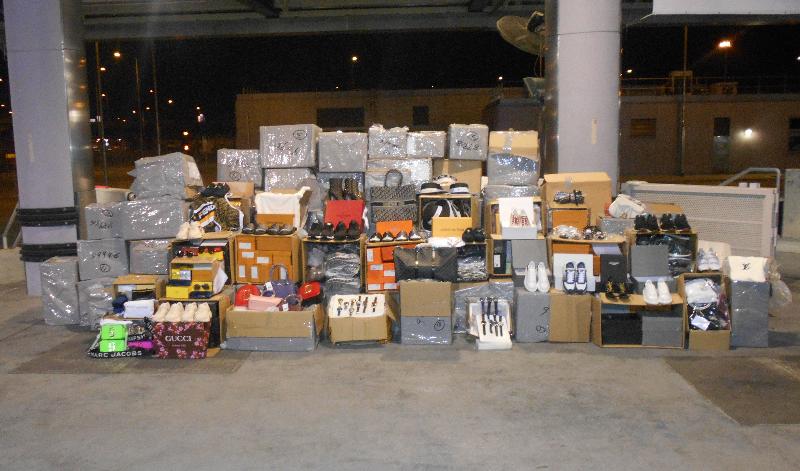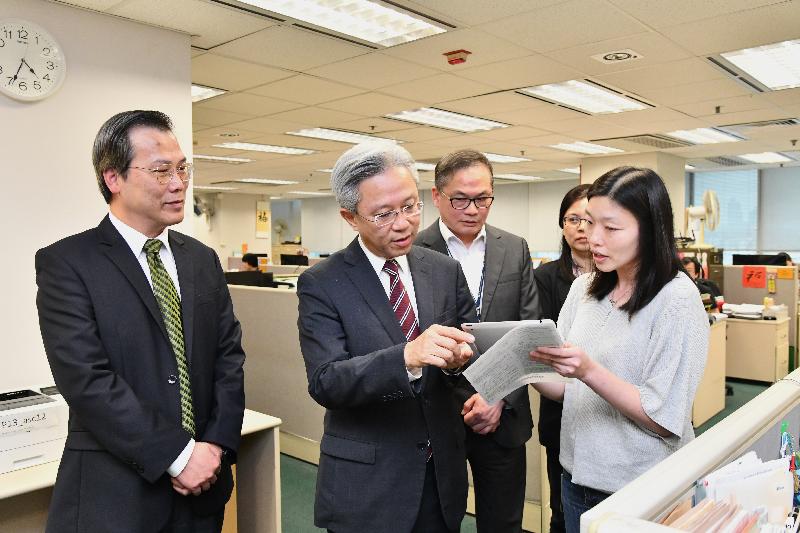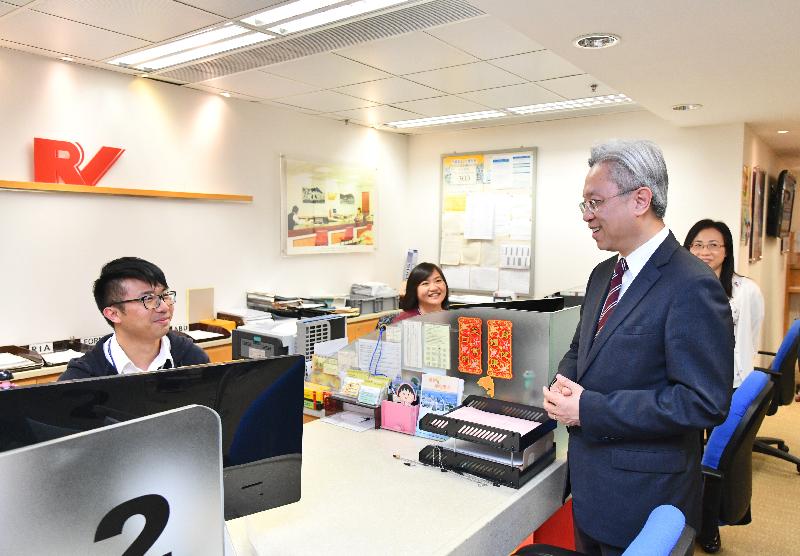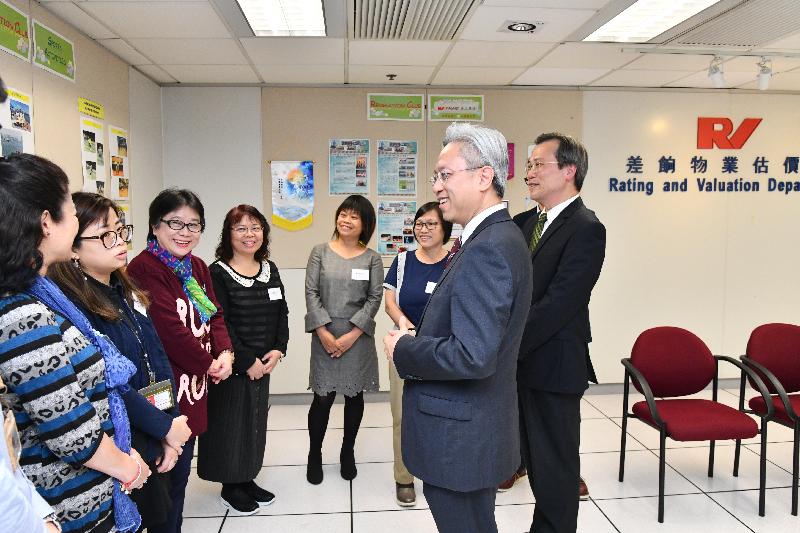CHP investigates two cases of measles infection
The Centre for Health Protection (CHP) of the Department of Health is today (March 20) investigating two cases of measles infection and hence reminded the public that vaccination is the most effective way to prevent measles.
The first case involves a 38-year-old man with good past health, who developed fever on March 14 and rash on March 16. He attended the Out-patient Department of St Teresa’s Hospital on March 16. He sought medical advice at Queen Elizabeth Hospital on March 17 and was admitted for treatment. His throat swab specimen tested positive for measles virus upon laboratory testing. He is in a stable condition.
The second case involves a 34-year-old man with good past health, who developed fever on March 5 and rash on the following day. He attended private clinics on March 6 and 7. He sought medical advice at Queen Elizabeth Hospital on March 9 and was admitted for treatment. His blood specimen tested positive for measles virus upon laboratory testing. He is in a stable condition and has been discharged.
Epidemiological investigations revealed that both patients’ measles vaccination history was unknown and they did not have contact with measles patients during the incubation period. Both patients had no travel history during the communicable period (four days before to four days after the appearance of skin rash). Their home contacts have remained asymptomatic so far and have been put under medical surveillance.
Investigations are ongoing and relevant contact tracing has been conducted. The places the two patients visited during the communicable period are listed below:
| Date | Time | Place | End of medical surveillance for contacts |
|
| First case | March 16 |
Noon to 5pm | Hong Kong Disneyland | April 6 |
| 9pm to 11pm | Out-Patient Department, St Teresa’s Hospital | |||
| Second case | March 6 | 12.30pm to 1.30pm | Happy Veggies (1/F, Bayfield Building, 99 Hennessy Road, Wan Chai) | March 27 |
| 2.30pm to 3pm | Links Medical Centre (Shop 3, G/F, Ming Hing Building, 149A Kiu Kiang Street, Sham Shui Po) | |||
| March 7 | 10am to 11.30am | Links Medical Centre (Shop A, G/F, Fung Wong Chuen Building, 1 Ngan Fung Street, Wong Tai Sin) | March 28 | |
| 7.30pm to 9.30pm | The Madhouse (G/F, 16 Yim Po Fong Street, Mong Kok) |
|||
| 9.30pm to 10.30pm | A vegetarian restaurant on G/F, 120 Fa Yuen Street, Mong Kok, Kowloon |
A spokesman for the CHP explained that measles is a highly infectious disease caused by the measles virus. It can be transmitted by airborne droplets spread or direct contact with nasal or throat secretions of infected persons, and, less commonly, by articles soiled with nose and throat secretions. A patient can pass the disease to other persons from four days before to four days after the appearance of skin rash.
The spokesman reminded the public that the incubation period of measles ranges from seven days to up to 21 days. Contacts who are not immune to measles may develop relevant symptoms, such as fever, skin rash, cough, runny nose and red eyes, in the incubation period. They should observe if they develop such symptoms in the period. If symptoms arise, they should wear surgical masks, stop going to work or school and avoid going to crowded places. They should also avoid contact with non-immune persons, especially persons with weakened immunity, pregnant women and children aged below 1. Those suspected to have been infected are advised to seek medical attention as early as possible and reveal relevant contact history of measles to healthcare professionals.
In Hong Kong, children are given the measles, mumps and rubella (MMR) vaccine at 1 year old, followed by a second dose at Primary One under the Hong Kong Childhood Immunisation Programme. The coverage of MMR vaccination in Hong Kong is over 95 per cent at Primary One.
“Vaccination is the most effective way to prevent measles. Members of the public who are planning to travel to places with high incidence or outbreaks of measles should review their vaccination history and past medical history, especially people born outside Hong Kong who might not have received measles vaccination during childhood. The history of measles vaccination in Hong Kong is available in the CHP’s measles thematic page. Those who have not received two doses of measles-containing vaccines, with unknown vaccination history or with unknown immunity against measles are urged to consult their doctor for advice on vaccination at least two weeks before departure,” the spokesman said.
Besides being vaccinated against measles, members of the public should take the following measures to prevent infection:
- Maintain good personal and environmental hygiene;
- Maintain good indoor ventilation;
- Keep hands clean and wash hands properly;
- Wash hands when they are dirtied by respiratory secretions, such as after sneezing;
- Cover the nose and mouth while sneezing or coughing and dispose of nasal and mouth discharge properly;
- Clean used toys and furniture properly; and
- Persons with measles should be kept out of school till four days from the appearance of rash to prevent spread of the infection to non-immune persons in school.
For more information on measles, the public may call the 24-hour health education hotline 2833 0111 or visit the CHP’s measles thematic page. For outbreak news of measles outside Hong Kong or the latest travel health advice, please visit the website of DH’s Travel Health Service. read more






